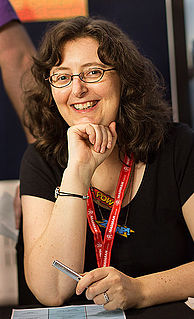A Quote by William Golding
He lost himself in a maze of thoughts that were rendered vague by his lack of words to express them. Frowning, he tried again.
Related Quotes
What a wee little part of a person's life are his acts and his words! His real life is led in his head, and is known to none but himself. All day long, the mill of his brain is grinding, and his thoughts, not those of other things, are his history. These are his life, and they are not written. Everyday would make a whole book of 80,000 words -- 365 books a year. Biographies are but the clothes and buttons of the man -- the biography of the man himself cannot be written.
I always find myself gravitating to the analogy of a maze. Think of film noir and if you picture the story as a maze, you don't want to be hanging above the maze watching the characters make the wrong choices because it's frustrating. You actually want to be in the maze with them, making the turns at their side, that keeps it more exciting...I quite like to be in that maze.
I want you to understand the words. I want you taste the words. I want you to love the words. Because the words are important. But they're only words. You leave them on the paper and you take the thoughts and put them into your mind and then you as an actor recreate them, as if the thoughts had suddenly occurred to you.
I get to live forever," he repeated. Luce was still lost, but he kept talking, a stream of words pouring out of his mouth. "I get to live, and to watch babies being born, and grow up, and fall in love. I watch them have babies of their own and grow old. I watch them die. I am condemned, Luce, to watch it all over again and again. Everyone but you." His eyes were glassy. His voice dropped to a whisper. "You don't get to fall in love--" "But...," she whispered back. "I've...fallen in love.
What we see at the cross is the white-hot revelation of the character of God, of his love providing the price that holiness requires. The cross was his means of redeeming lost sinners and reconciling them to himself, but it was also a profound disclosure of his mercy. It is, in Paul’s words, an ‘inexpressible gift’ that leads us to wonder and worship, to praise and adore the God who has given himself to us in this way.
That’s how Ptolemy imagined the disposition of his memories, his thoughts: they were still his, still in the range of his thinking, but they were, many and most of them, locked on the other side a closed door that he’s lost the key for. So his memory became like secrets held away from his own mind. But these secrets were noisy things; they babbled and muttered behind the door, and so if he listened closely he might catch a snatch of something he once knew well.






































